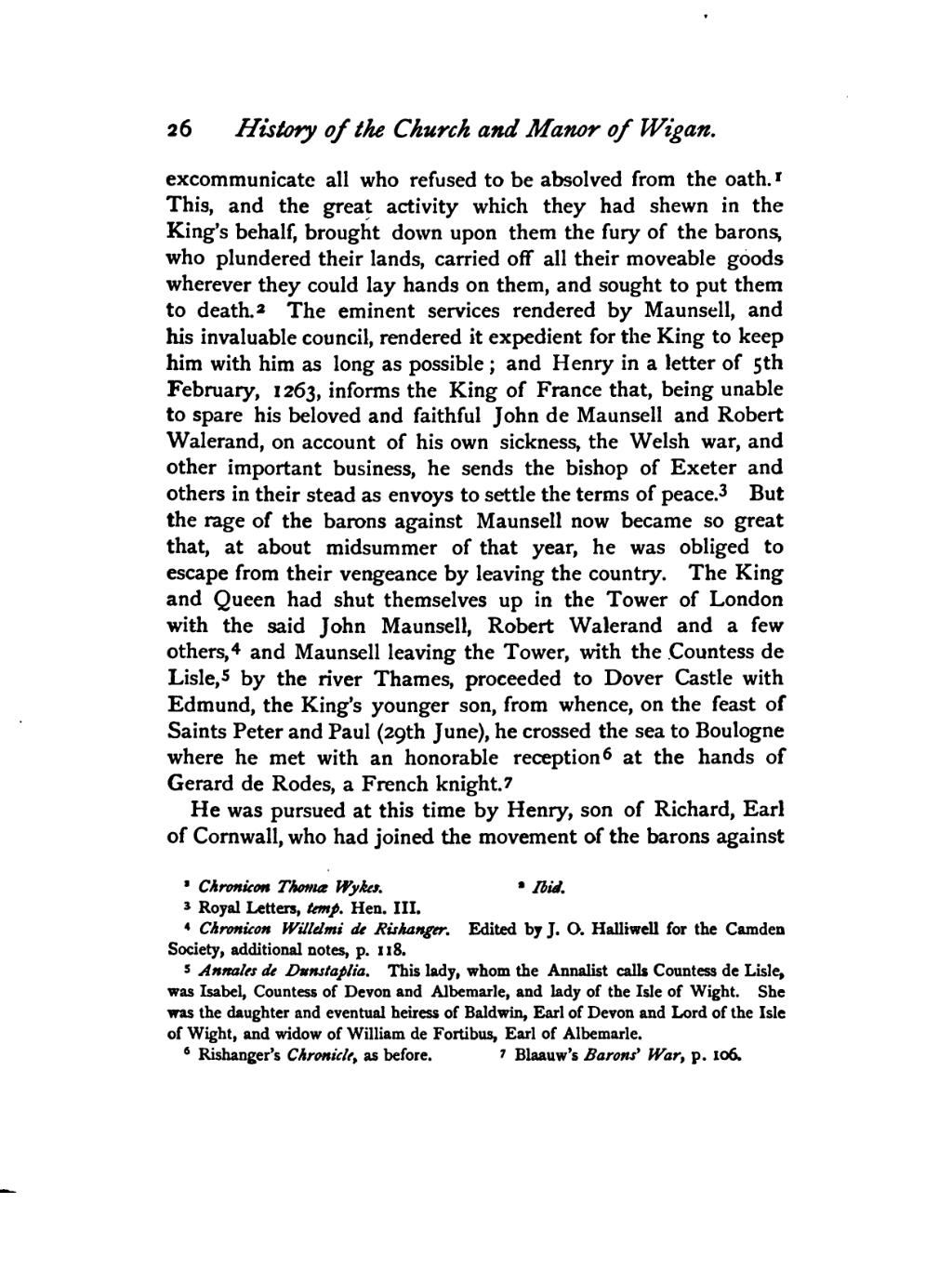excommunicate all who refused to be absolved from the oath.[1] This, and the great activity which they had shewn in the King's behalf, brought down upon them the fury of the barons, who plundered their lands, carried off all their moveable goods wherever they could lay hands on them, and sought to put them to death.[2] The eminent services rendered by Maunsell, and his invaluable council, rendered it expedient for the King to keep him with him as long as possible; and Henry in a letter of 5th February, 1263, informs the King of France that, being unable to spare his beloved and faithful John de Maunsell and Robert Walerand, on account of his own sickness, the Welsh war, and other important business, he sends the bishop of Exeter and others in their stead as envoys to settle the terms of peace.[3] But the rage of the barons against Maunsell now became so great that, at about midsummer of that year, he was obliged to escape from their vengeance by leaving the country. The King and Queen had shut themselves up in the Tower of London with the said John Maunsell, Robert Walerand and a few others,[4] and Maunsell leaving the Tower, with the Countess de Lisle,[5] by the river Thames, proceeded to Dover Castle with Edmund, the King's younger son, from whence, on the feast of Saints Peter and Paul (29th June), he crossed the sea to Boulogne where he met with an honorable reception[6] at the hands of Gerard de Rodes, a French knight.[7]
He was pursued at this time by Henry, son of Richard, Earl of Cornwall, who had joined the movement of the barons against
- ↑ Chronicon Thomæ Wykes
- ↑ Ibid.
- ↑ Royal Letters, temp. Hen. III.
- ↑ Chronicon Willelmi de Rishanger. Edited by J. O. Halliwell for the Camden Society, additional notes, p. 118.
- ↑ Annales de Dunstaplia. This lady, whom the Annalist calls Countess de Lisle, was Isabel, Countess of Devon and Albemarle, and lady of the Isle of Wight. She was the daughter and eventual heiress of Baldwin, Earl of Devon and Lord of the Isle of Wight, and widow of William de Fortibus, Earl of Albemarle.
- ↑ Rishanger's Chronicle as before.
- ↑ Blaauw's Barons' War, p. 106.
